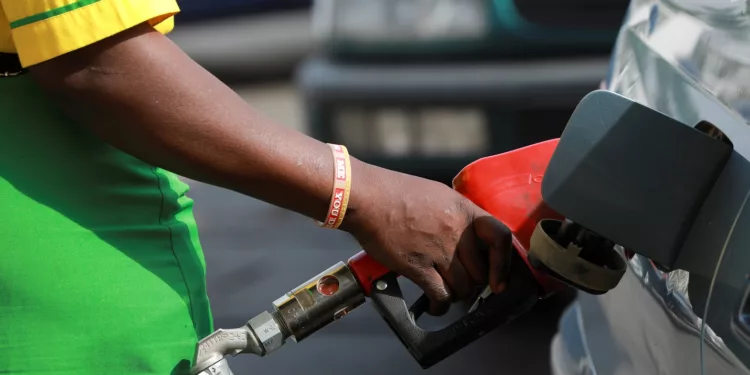There are reports indicating that pump price of petrol in Nigeria may not go up despite a sharp rise in the price of crude in the international market.
Despite being an oil-producing nation, Nigeria relies heavily on imported petroleum products.
This means that any rise in global oil prices is directly reflected in local fuel pump prices.
Currently, petrol sells for between N870 and N1,100 per litre in some urban centres, with diesel selling for about N970 to N1,100.
With the spike in crude prices, local marketers say petrol could hit N1,200 per litre in the next few days if the rally continues.
With positive growth in local refining capacity, a highlighted report by the National Bureau of Statistics (NBS), showed a significant decline in Nigeria’s importation of petroleum products, with the total value dropping to N3.786tn in the first quarter of 2025.
According to its Foreign Trade in Goods Statistics for Q1 2025, this marks a 21.21 per cent decline from the N4.805tn recorded in Q4 2024 and a sharp 75.55 per cent drop from N15.48tn in Q1 2024.
The drop coincides with increased domestic output from refineries such as the 650,000 barrels-per-day Dangote refinery.
The NBS also reported that crude oil exports fell to N12.95tn in Q1 2025, down 16.35 per cent from N15.48tn recorded in Q1 2024 and 6.01 per cent from N13.78tn in Q4 2024.
“Other oil product exports in Q1 2025 stood at N4.47tn, showing an increase of 134.24 per cent rise from N1.91tn in Q1 2024 and as well as increase of 32.07 per cent from N3.388.8bn in Q4, 2024,” the NBS said.
The agency added that agricultural exports grew substantially during the period.
“Exports of agricultural goods in the period under review amounted to N1.7tn representing a 64.65 per cent rise from N1.035bn in Q1 2024 and a 10.63 per cent increase from N1.54bn in Q4 2024.”
The value of raw material exports also climbed in Q1 2025, reaching N1.04tn, a 196.12 per cent surge from N352.75bn in Q1 2024 and a 55.65 per cent increase from N671.12bn in Q4 2024.
However, solid mineral exports dropped by 7.17 per cent to N58.87bn, compared to N63.41bn in Q1 2024, and decreased by 3.03 per cent from N60.70bn in Q4 2024.
However , there are fears that the rise in crude prices also raises issues about Nigeria’s inflation trend, which already stood at 33.88 per cent in April 2025, caused by fuel and transport costs.
A spike in crude oil prices means more expensive logistics, food prices, and power costs, especially, for families and businesses depending on diesel and petrol-powered generators.
Petroleumprice reports that the renewed tension exposes Nigeria’s longstanding weakness in the energy supply chain.
Despite being Africa’s largest producer, Nigeria has yet to fully revive its refining facilities to function optimally as the Dangote Refinery continues to rely on imported crude to meet its refining needs.
Reports say, the country’s dependence on imports exposes it to external shocks, such as the Middle East crisis.
The international oil market reacted swiftly on Thursday, June 12, 2024, after Israel launched airstrikes on Iran’s nuclear sites.



